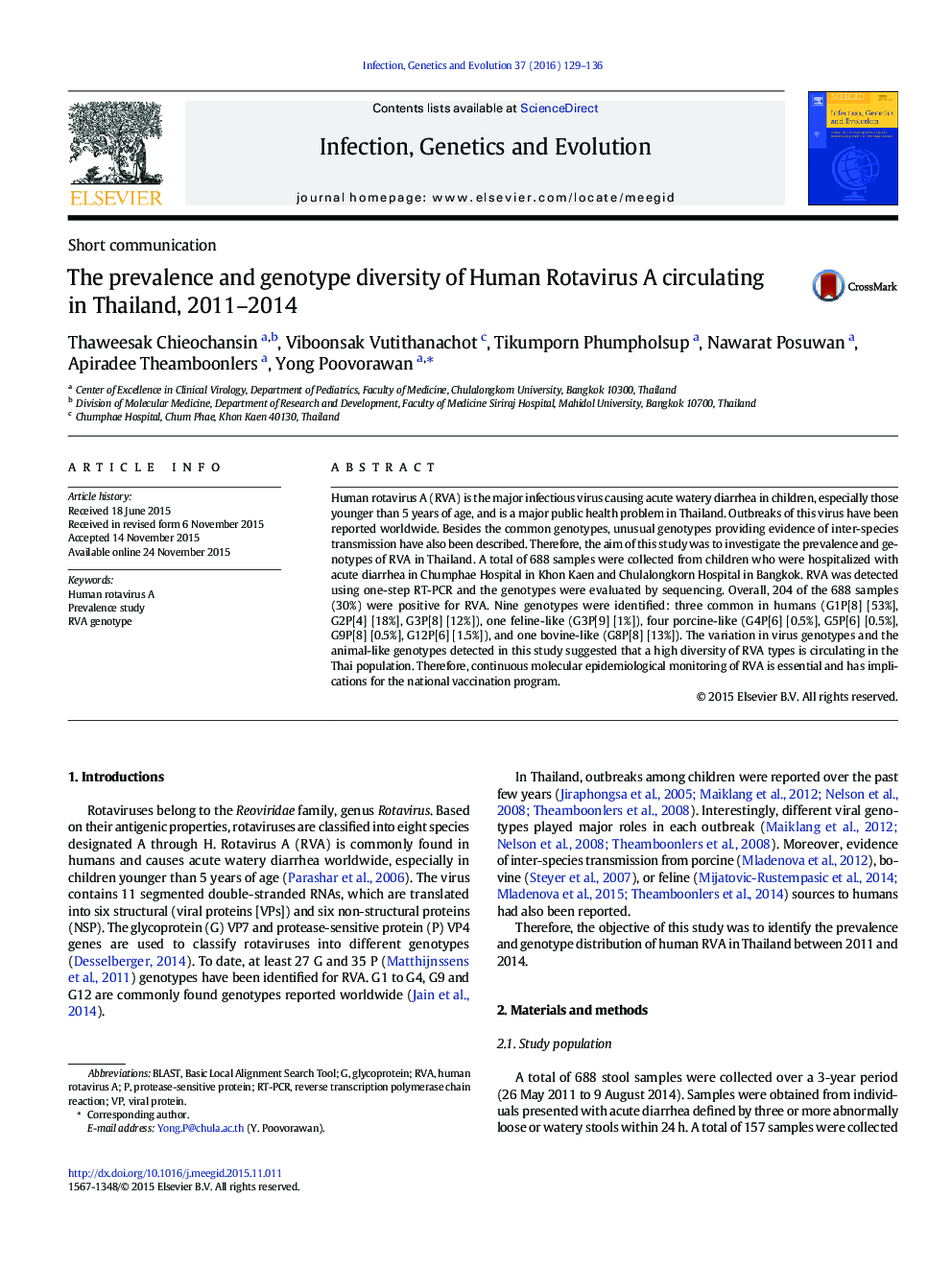| Article ID | Journal | Published Year | Pages | File Type |
|---|---|---|---|---|
| 5909127 | Infection, Genetics and Evolution | 2016 | 8 Pages |
â¢A total of 688 human fecal samples were collected and tested for the RVA genome.â¢Thirty percent of samples were RVA-positive and nine genotypes were identified.â¢Feline-like, porcine-like, and bovine-like genotypes were reported in the study.
Human rotavirus A (RVA) is the major infectious virus causing acute watery diarrhea in children, especially those younger than 5Â years of age, and is a major public health problem in Thailand. Outbreaks of this virus have been reported worldwide. Besides the common genotypes, unusual genotypes providing evidence of inter-species transmission have also been described. Therefore, the aim of this study was to investigate the prevalence and genotypes of RVA in Thailand. A total of 688 samples were collected from children who were hospitalized with acute diarrhea in Chumphae Hospital in Khon Kaen and Chulalongkorn Hospital in Bangkok. RVA was detected using one-step RT-PCR and the genotypes were evaluated by sequencing. Overall, 204 of the 688 samples (30%) were positive for RVA. Nine genotypes were identified: three common in humans (G1P[8] [53%], G2P[4] [18%], G3P[8] [12%]), one feline-like (G3P[9] [1%]), four porcine-like (G4P[6] [0.5%], G5P[6] [0.5%], G9P[8] [0.5%], G12P[6] [1.5%]), and one bovine-like (G8P[8] [13%]). The variation in virus genotypes and the animal-like genotypes detected in this study suggested that a high diversity of RVA types is circulating in the Thai population. Therefore, continuous molecular epidemiological monitoring of RVA is essential and has implications for the national vaccination program.
